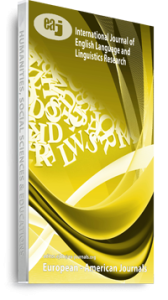There have been a lot of problems in EFL writing classes. The problems include limited teaching time, absence of assistance for students’ learning at home, and individual differences in learning. To cope with these problems, the present study investigates the effect in the use of flipped classroom model on the writing ability of EFL students across their individual differences in learning. It involved 62 students at an Indonesian secondary school level who were distributed into two intact groups: experimental and control. Pre-test and posttest were administered to collect quantitative data, and the students’ writing was observed to verify the results of the quantitative data. The results showed that there is a significant difference on the students’ post-test score (t-count = 10.893 , p-value= 0.000) between the experimental and control groups. The flipped classroom method also appeared to result in significantly different among the interaction groups on the students’ post-test score.
Keywords: : Writing ability, Flipped Classroom Model, Individual Difference in Learning

